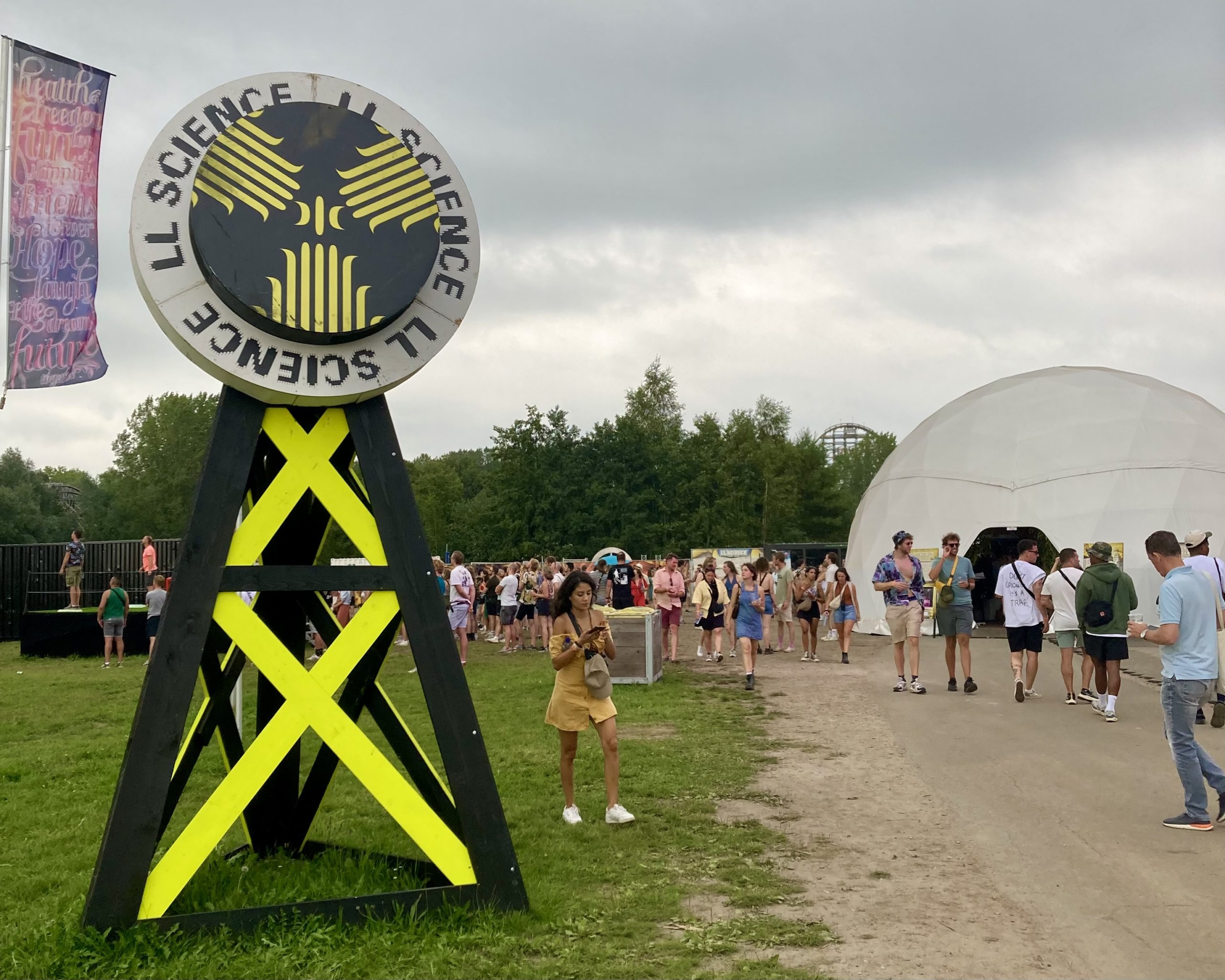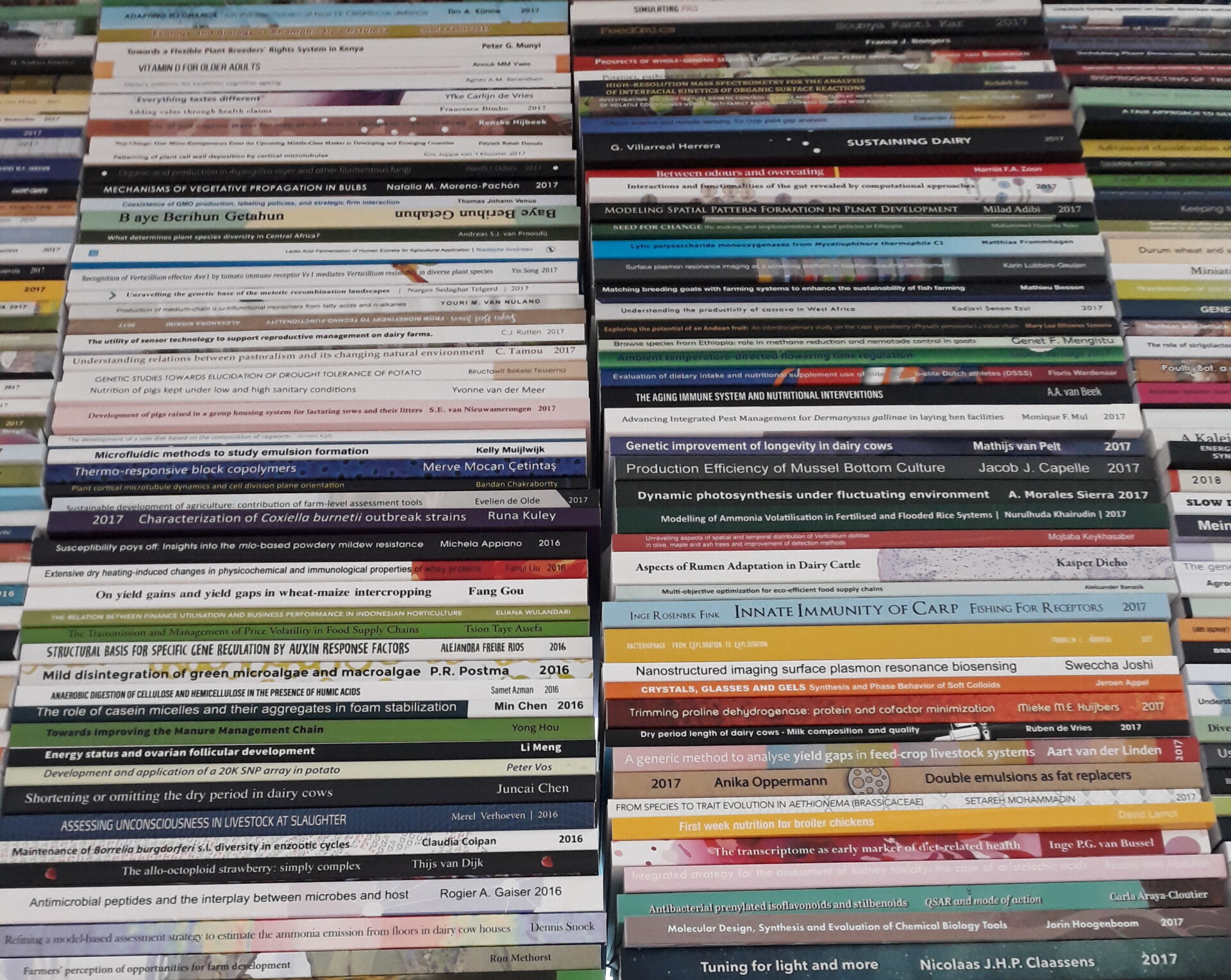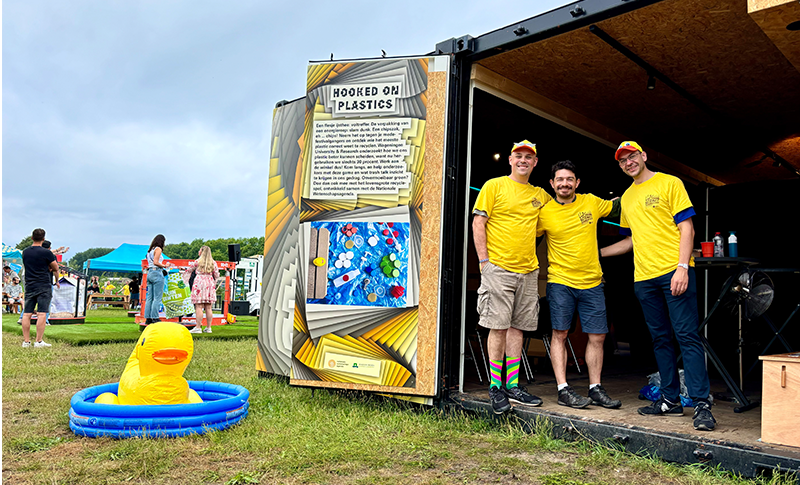WUR is once again present as part of the 2024 edition’s science programme at the Lowlands Music Festival. PhD student Rick Fransman and his co-supervisor Robert Goedegebure (both Urban Economics) teach festival visitors how to separate plastics correctly.
Social scientists Rick Fransman and Robert Goedegebure’s study is called ‘Hooked on Plastics’ and is part of the MUNITION research project. ‘Our aim at Lowlands is to use a tongue-in-cheek approach to map what information can help households sort their waste correctly’, Goedegebure reveals.
Rubber ducks
The MUNITION research project aims to investigate whether governments should focus on pre-sorting using individual containers or sorting waste at the recycling facility. ‘Pre-sorting is what we do at home, for example, by using a separate bin for plastics. Sorting at the recycling facility means all waste is collected together and sorted at the plant. My project specifically focuses on the barriers within our households that prevent us from recycling plastics properly’, Fransman explains.
Fransman and Goedegebure don’t want to reveal too much about their experiment to ensure the Lowlands visitors’ neutrality in participating in their study. Nevertheless, they give us a peek. ‘We will have visitors fish for rubber duckies in a small pool. The ducks are numbered to correspond with bits of plastic. We will then ask the visitors how they would recycle said plastic. Thus, we want to find out what people consider easy and difficult about recycling.’
Interactive
Goedegebure admits that separating waste is complex. ‘Rules change, and the way waste is collected varies per region. Additionally, what must be processed how is not always clear.’ For example: What would you do with the cardboard surrounding yoghurt cups? And what about the foil on top? Sometimes this is aluminium, and sometimes it is plastic. ‘The knowledge festival visitors gain from our games can be used at home.’
‘This is an excellent way for us to gather a large amount of data in a short time. The crowd at Lowlands is diverse, with many different opinions and perspectives. Other than that, it is a somewhat strange setting but will yield valuable information,’ Fransman says. The great thing about Lowlands is that we can see how the people interact with the bits of plastic and what choices they make.’
Conscious recycling
Lowlands aims to focus more on recycling plastic this year. Goedegebure: ‘They have joined forces with the National Science Agenda, which also forms the basis in how we designed our investigation. Next to our stand, ‘#FilterOn: boost Lake Lowlands’ biodiversity’ will be present. This is a study by the Dutch Institute for Ecology. The Great Recycling Game will also have a stand. Together, we will contribute to raising awareness of recycling.

 Lowlands Science. Photo Lowlands
Lowlands Science. Photo Lowlands 
